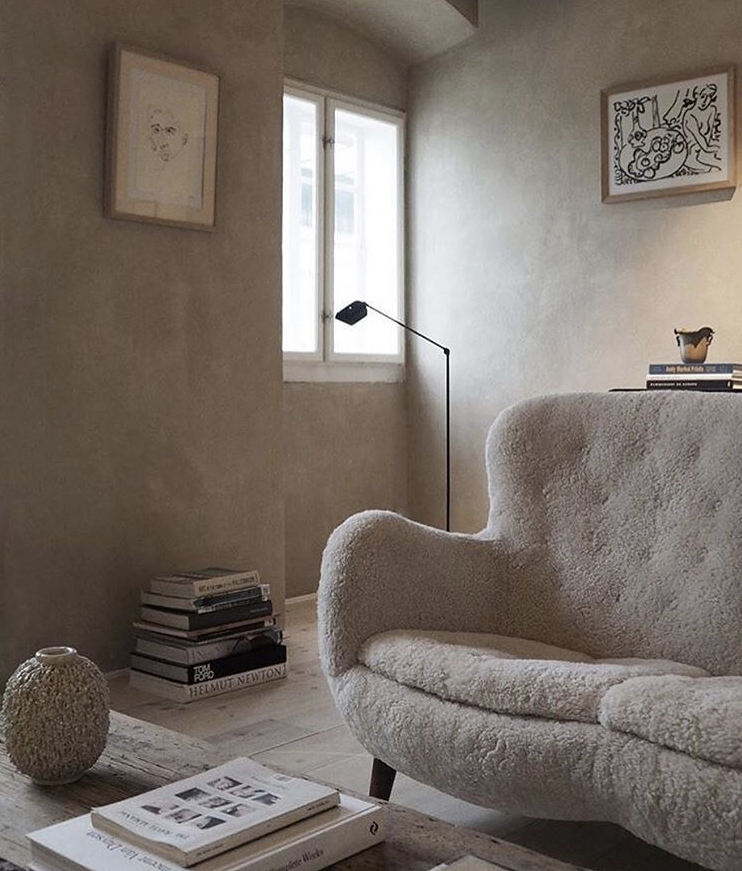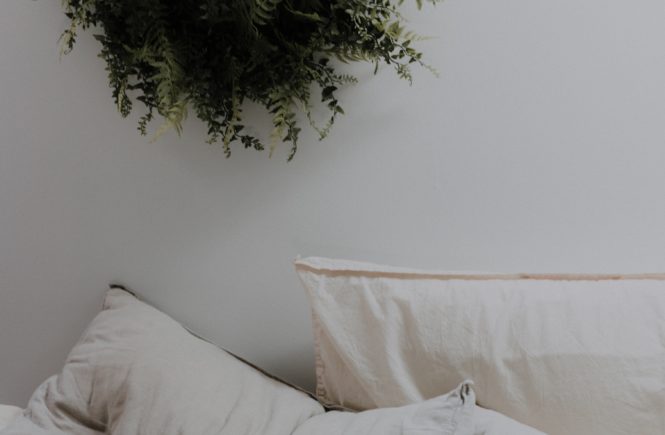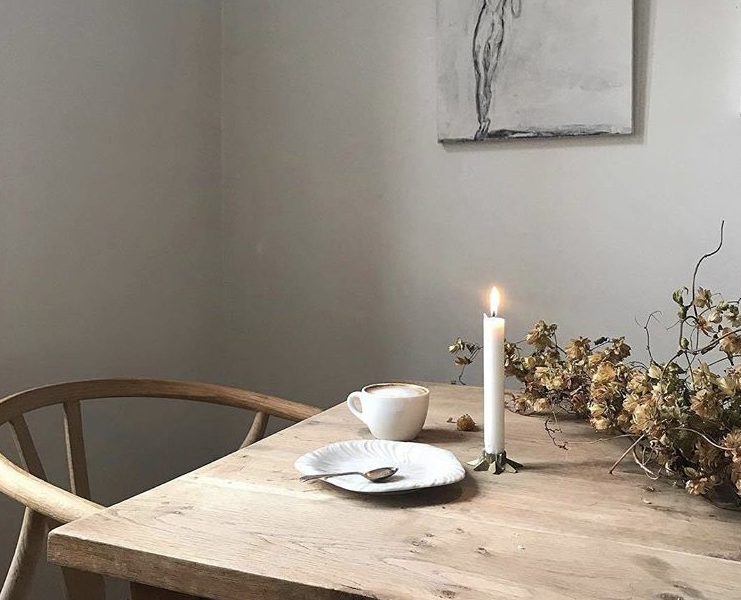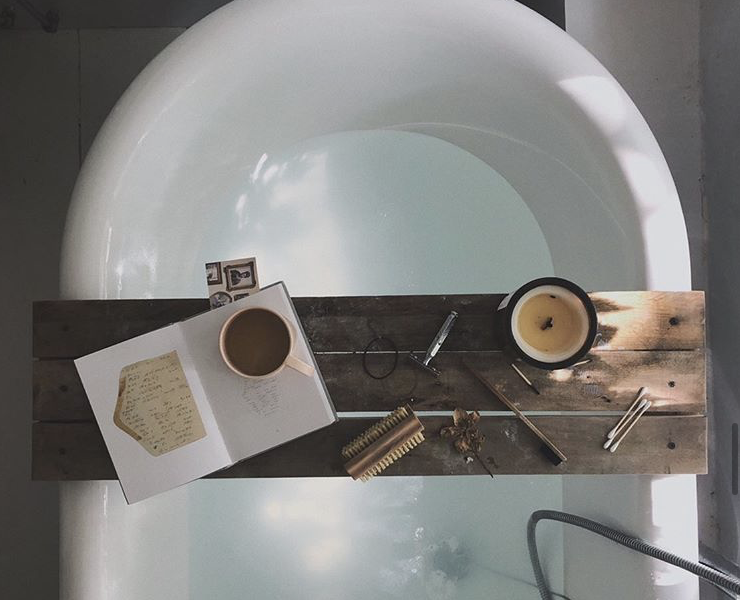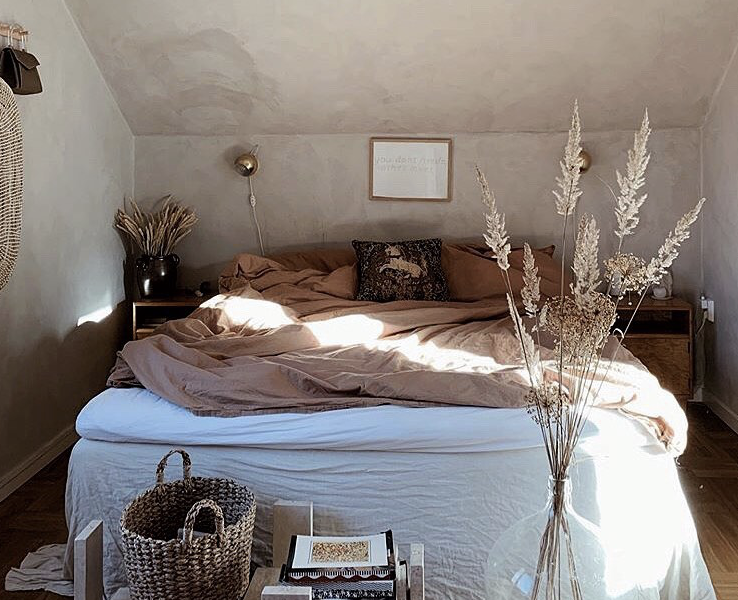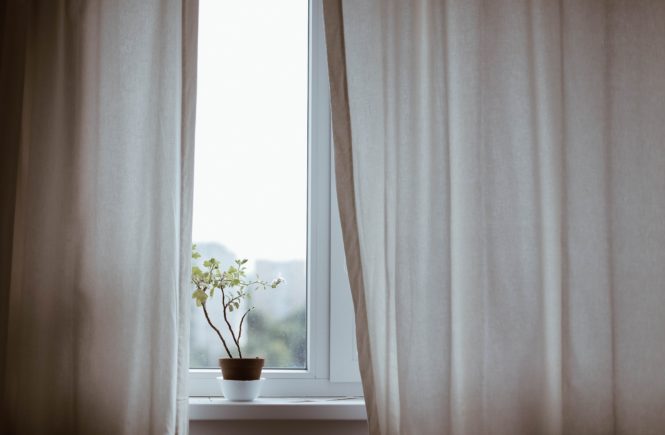“There is nothing like staying at home for real comfort. Nobody can be more devoted to home than I am”.
Jane Austen
Homecoming.
According to the Co-Star ‘social astrology experience’ app, a Taurus’ worst nightmare is “getting invited back out after they’ve already gone home for the evening”. Though I’m not a Taurus, my moon (the part of our birth chart that represents our emotions and inner landscape) falls in the sign and I can wholeheartedly relate. The combination of my moon sign in earthy, comfort-seeking Taurus and having an archetypal Taurus as a husband, means that I fully embrace the life of a homebody. For me, there is nothing better than arriving home after a busy day, changing into cosy clothes, drawing the blinds, lighting a candle and turning the lights low.
However, it sounds like this homely comfort mode appeals to more than a population of Taureans, and instead represents a general shift in society, especially across the millennial generation.
Alone, together.
Our experiences of political and economic instability, coupled with life-changing advances in technology and the resulting changes in working patterns have played a large part in popularising the indoor-inclined trend.
We can now order just about anything to come to us without leaving the comfort of the sofa. We can legitimately work, run a business and make a living from home. Technology and especially social media, is also the tool to ensure we still have a connection to the world beyond our front door.
So although we no longer need to leave our home comforts, we don’t want to feel totally isolated either and relish knowing that we are alone, together.
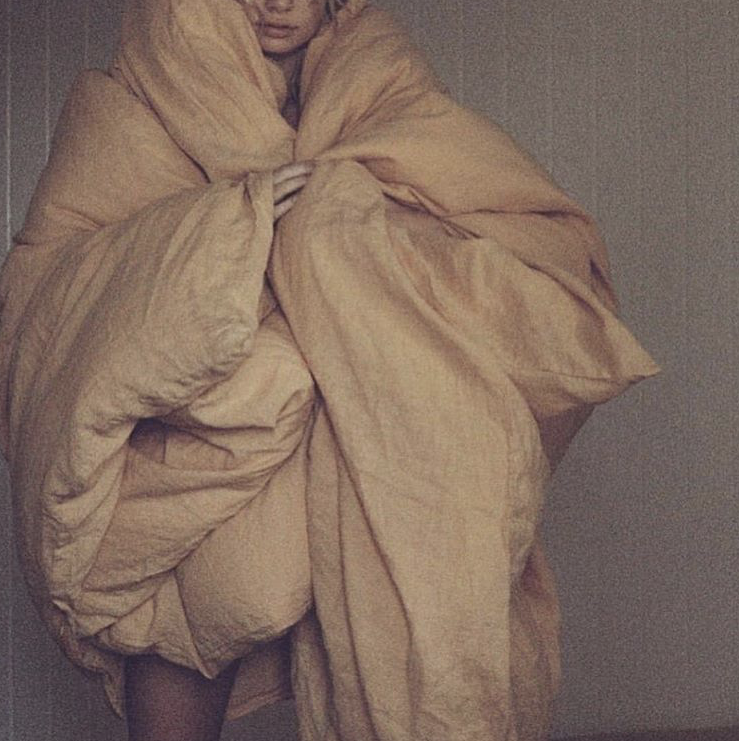
Constant contact and burnout.
But is the constant connection also the cause of the burnout epidemic, fuelling our desire to stay at home…? Email, WhatsApp and social media channels dissolve traditional boundaries and ensure that we are always available and accessible.
This is not only to work, but also to our friends and family, which although has obvious advantages, adds to the unending to-do list of low-level tasks demanding our attention and a response.According to Josh Cohen, a psychoanalyst specialising in burnout, the exhaustion we experience, “combines an intense yearning for this state of completion with the tormenting sense that it cannot be attained, that there is always some demand or anxiety or distraction which can’t be silenced.”
It is the nature of the ongoing list, the pressure we put on ourselves to ‘succeed’ personally and professionally, along with the culture of ‘doing’ that allows burnout to creep up on us. Something I have come to realise that was on the edge of, and explore my personal experience of in the post, ‘Why homecoming?’
It’s no wonder that we often find ourselves avoiding expending any additional energy running around doing errands or interacting with others in the ‘outside world’, instead we crave the comfort and safety of our own homes.
Stay home, beautifully.
Naturally, the more we stay at home, the more important our environment becomes. We need a space where we can ‘take off’ the day, switch off and simply ‘be’. We are deeply affected by the space we inhabit, with energy transferring from one to the other as we inevitably absorb the space around us. See how different you feel trying to relax of an evening under full lights, versus the calm relief we feel in a low light that replicates candle or firelight.
We don’t just want to stay home — we want to stay home beautifully.
Homecoming as self-care.
It’s no surprise that the hospitality trade sadly suffers as British pubs are closing at a rate of around 18 a week and half of the nation’s nightclubs shut down between 2005-2015, according to The Telegraph. Instead, according to US site, Vox, the ‘homebody economy’ is thriving, with streaming services and delivery apps booming and the Royal Mail predicting that subscription box services will be a billion pound market by 2022. Sales of products to make our experience of home more comfortable, like candles, pyjamas, bedlinen and mattresses are also on the rise, with many fashion brands recognising the trend and moving into homeware.
Nesting and creating a connection to our space is an extension of ‘self care’, despite being an overused phrase, it is something that we need more of, to rest and recharge in order to counter the age of burnout.
That welcome feeling of arriving home after a busy day indicates a much-needed down-regulation of our nervous systems. Home is an important anchor that allows us to feel a sense of rootedness and stability in a world that is often demanding something from us. Since the very first primitive huts and dwellings – we all long for a sanctuary that represents us, a nest where we can retreat and be unapologetically ourselves. Home provides shelter, comfort, connection but also an everyday beauty that is personal to us and enriches our lives.
